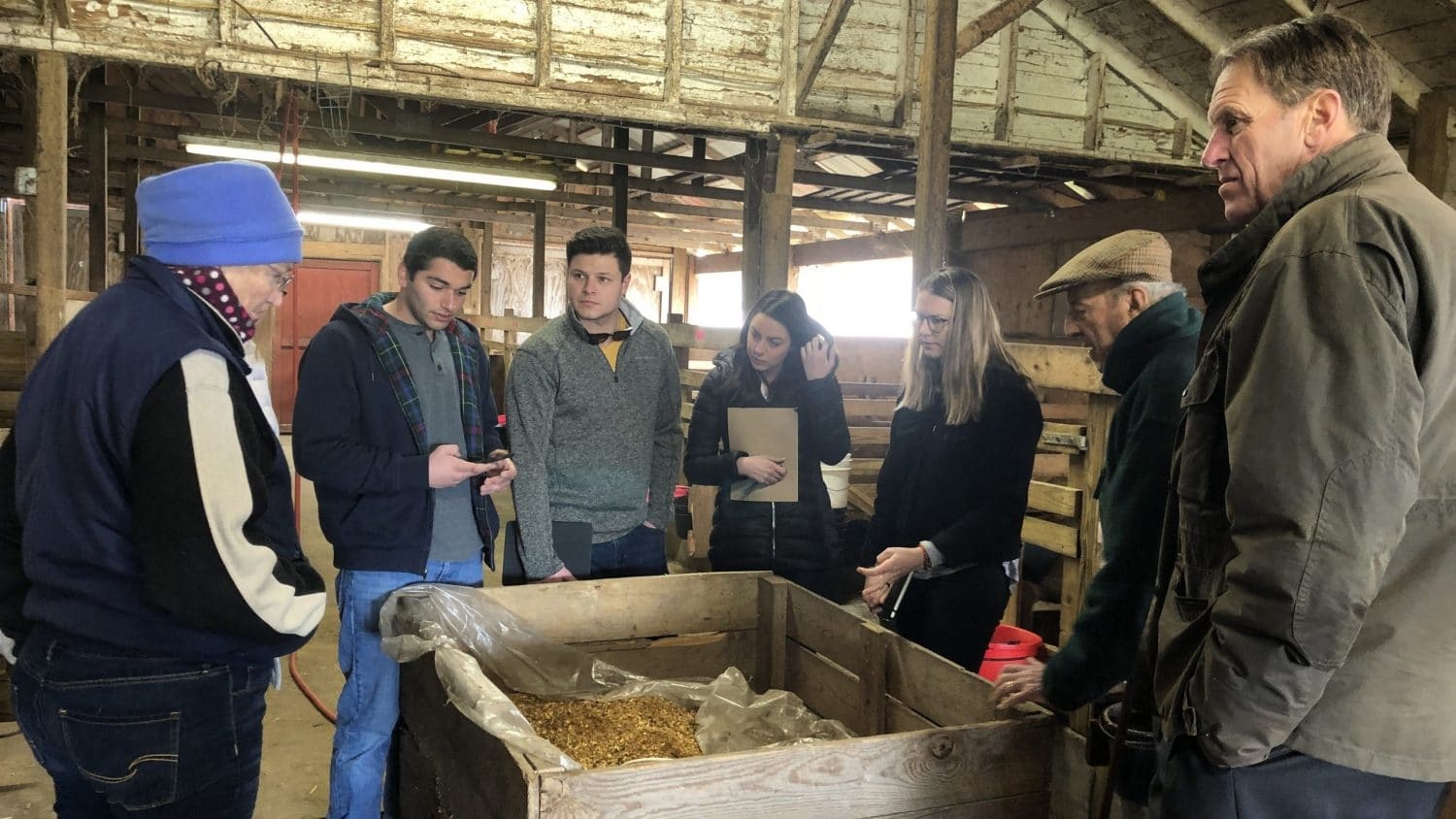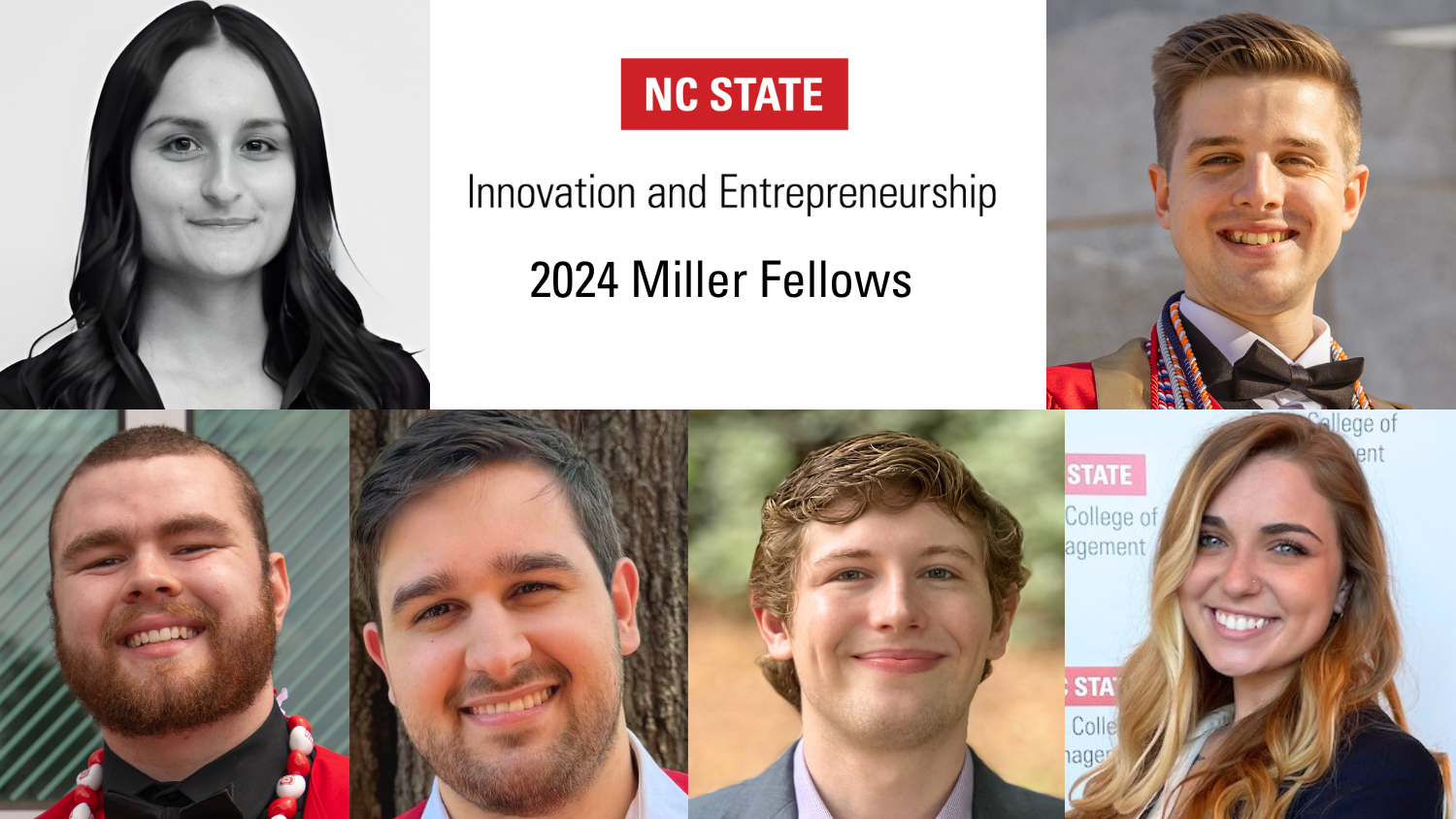Biltmore Farms and Biltmore Estate look to NC State Entrepreneurship Clinic to Study Future Opportunities for Their Famous Jersey Herd

Few names in North Carolina carry as much history and tradition as the Vanderbilt and Cecil families. Biltmore Dairy Farms was founded by George Washington Vanderbilt in 1897 and later passed down to his grandson George Cecil, who over the years has evolved the company from the region’s largest independent dairy operation to a leading community development firm.
“Many people correctly attribute our family history to The Biltmore House, its gardens and its architecture, but there is an equally important aspect to what my great-grandfather wanted to accomplish in Western North Carolina,” explains Jack Cecil, president and CEO of Biltmore Farms. “He sought to ensure that forestry and agriculture practices were sustainable and economically viable.”
Last year, as the family was considering new business opportunities for its prize-winning Jersey herd, they looked to NC State, Poole College of Management and the Entrepreneurship Clinic (eClinic). The eClinic, which implements a “teaching hospital” model, brings students, faculty and companies together to develop innovative solutions to unique business opportunities. The experiential learning environment gives students hands-on entrepreneurial experience, providing an unparalleled opportunity to gain expertise as entrepreneurs – and to give back to the state of North Carolina.
Today, the herd of nearly 800 Jersey dairy cows is managed by Mike Corn, a farmer in Mills River, N.C. Thinking ahead and wanting to prepare a succession plan, Biltmore Farms requested a detailed market research study to determine which products – fluid milk, cheese and ice cream – could be sold at wholesale and retail prices through the existing food and beverage venues located on the Biltmore Estate, and possibly, in the future, through various retail outlets off-Estate.

“I approached Provost Warrick Arden and explained how this could become a great independent study project for NC State students,” Cecil says. “This project will ultimately include market research, management, veterinary sciences, engineering, design and production. We need to figure out how to run a new business venture and if proven profitable scale it.”
As part of the eClinic, NC State students and alum Tristin Sweeney, Omid Bonakdar, Nick Protonentis and Brittany Burkhard were tasked with conducting a feasibility study about returning the herd to The Biltmore’s historic property – along with developing a proposal for a new dairy operation that preserves the family’s historic commitment to sustainability.
As a business student, I chose an entrepreneurship concentration, which has provided me unlimited possibilities to stretch across so many verticals of studies.” -Britanny Burkhard
Both Sweeney and Burkhard recently graduated from Poole College this past May with degrees in business administration. Bonakdar is entering his senior year at Poole College, and Protonentis is a rising senior in the College of Engineering.
“This has been an amazing opportunity to take a deep dive into multiple disciplines like agriculture and production,” Burkhard says. “As a business student, I chose an entrepreneurship concentration, which has provided me unlimited possibilities to stretch across so many verticals of studies.”
After visiting the farm, interviewing several stakeholders and conducting a market research study, eClinic students proposed developing a specialty line of value-added dairy products like cheeses and ice creams – a venture that would draw on Biltmore’s rich legacy in quality dairy production.
From 1897 until the mid 1980s, Biltmore Farms developed a reputation throughout the Carolinas for its superior milk, butter and cream delivered by its yellow-and-black trucks, and for its famous ice cream served at The Biltmore Dairy Bars.
“My grandparents remember going to the Dairy Bar for ice cream when they were younger,” Burkhard says. “Our team wanted to start a new business venture that builds on that legacy while being profitable and sustainable as well. It has been so helpful to see, through the eClinic, how much work goes on behind the scenes in developing new product lines.”

Cecil commended the students’ thoughtfulness and thoroughness in developing the proposal. “The students were wonderful. They came from diverse backgrounds and had different, yet complementary, skillsets, which is exactly what we wanted,” Cecil says. “Their presentation was detailed, interactive and dynamic. They developed different cost structures and marketing price points, which allows us to model in real time multiple planning scenarios moving forward.”
“I have really enjoyed working with NC State and Biltmore Farms as we have collaborated on this project,” says Bill Cecil, CEO of The Biltmore Company. “In addition to the important connection this work has to our agricultural history on the estate, I have learned a lot about the current operation of regional dairies. That learning will continue to be important as we consider new initiatives on our farm.”
The Biltmore Jersey project, when finished, will involve NC State students from Poole College of Management, the College of Design, the College of Agriculture and Life Sciences, the College of Veterinary Medicine and the College of Engineering. Students in the College of Agriculture and College of Veterinary Medicine will use the study developed by the eClinic to determine the correct herd size to produce the necessary poundage of milk to supply the various outlets. That information will be used by College of Engineering and College of Design students to create plans for a new-construction barn, standalone processing facility and visitor experience venue – along with determining annual operating profit and loss statements for each building.

“Both Biltmore Farms and The Biltmore Company have partnered with NC State in the past,” Cecil says. “This project is a common interest for both of our families and will play an important role in the future of our respective businesses.”
This post was originally published in Poole College of Management News.
- Categories:


